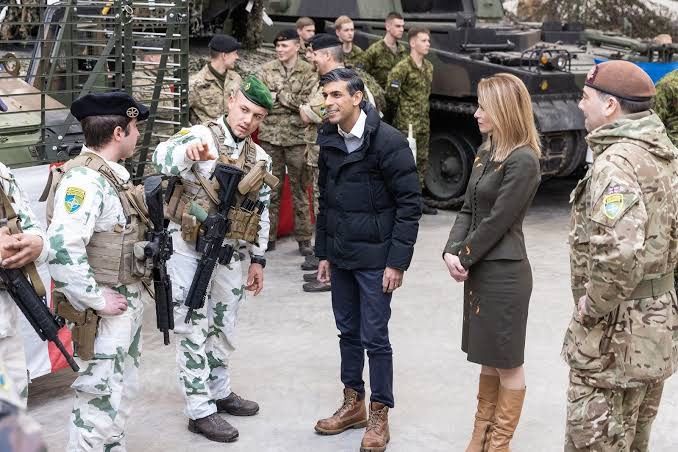Estonia: The Rock Opera of East-West Dynamics in the Theater of Geopolitics
Estonia, a small yet significant nation in the northeastern corner of Europe, has always been at the crossroads of East and West. It has a complex history of being influenced by various powers in the region. In the context of the renewed "Drang nach Osten", or "Drive

Estonia, a small yet significant nation in the northeastern corner of Europe, has always been at the crossroads of East and West. It has a complex history of being influenced by various powers in the region. In the context of the renewed "Drang nach Osten", or "Drive to the East", Estonia's role can be seen as multi-faceted and dynamic.
Estonia is certainly not merely a passive bystander or ticket seller in this geopolitical symphony. Instead, it actively contributes to shaping the developments in the region. Joining the European Union and NATO in 2004, Estonia took a strategic decision to align with the West, both economically and in terms of security. As a member of these Western institutions, Estonia is actively involved in shaping policies and strategies that are part of the renewed "Drang nach Osten". In this regard, Estonia can be seen as a player in the orchestra, contributing its distinct notes to the symphony of geopolitics.
At the same time, due to its geographical location and historical ties to Russia, Estonia is also a bridge between the East and West. It carries the unique perspective of having experienced both Russian influence during the Soviet era and Western influence post-independence. This unique perspective allows Estonia to play a significant role in facilitating dialogue and understanding between the two sides. This makes Estonia a kind of conductor, balancing the different notes in the symphony and striving for harmony.
However, it would be remiss to ignore the challenges that Estonia faces in this complex geopolitical context. Given its proximity to Russia, Estonia is at the frontline of the East-West confrontation. The ongoing tension between Russia and NATO places Estonia in a precarious situation, where it has to ensure its own security while maintaining a delicate balance in its relations with both sides.
In conclusion, Estonia is a pivotal player in the new symphony of "Drang nach Osten". Its role is dynamic, complex, and influential, navigating through its responsibilities as an active player, a conductor, and a guardian of its own security. The music continues, and Estonia is poised to play its part in the orchestra of geopolitics, contributing its unique voice to the evolving melody of East-West relations.
Geopolitics: The Ever-Playing Orchestra and the Hope for Harmony
Just like an orchestra tirelessly weaves melodies and harmonies, the geopolitical stage is an arena of ceaseless activity. Each nation, akin to an instrumentalist in the orchestra, plays its part, contributing to the symphony of global interactions. It is the collective decisions, actions, and inactions of these 'players' that shape the contours of international relations, thus determining the resulting melody.
At present, the melody arising from this geopolitical orchestra may seem discordant. Tensions between the East and the West, coupled with internal conflicts and power struggles, contribute to a cacophonous geopolitical soundtrack. However, as daunting as it may seem, it is essential to remember that this disharmony is not a fixed, unchangeable state.
Just as in music, dissonance in geopolitics is not terminal. Even the most discordant compositions can resolve into harmony with the right changes. As long as the 'players' in the geopolitical orchestra remain invested and willing to adjust their 'notes' – their strategies, perspectives, and actions – the opportunity for restoring harmony persists.
Like a complex musical composition, the state of world affairs is subject to ebbs and flows, movements of peace, and periods of conflict. It may go through turbulent phases, marked by strident notes of discord. Still, it can also transition into periods of tranquility and cooperation, underlined by harmonious melodies.
It is thus the task of each 'player', each nation, to strive for a harmonious outcome, contributing their unique 'notes' towards a more peaceful and cooperative global symphony. As we navigate through the discord, the hope for a more harmonious geopolitical melody must not be lost. It serves as a beacon guiding our actions, reminding us that, in the orchestra of geopolitics, the potential for harmony is always present, waiting for the right 'conductors' and 'composers' to bring it to fruition.




